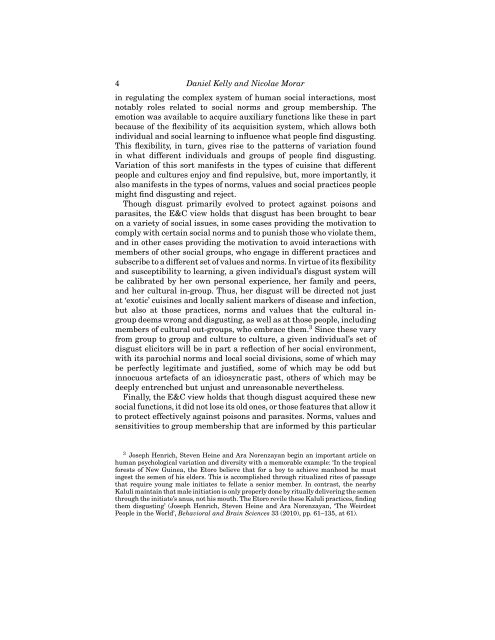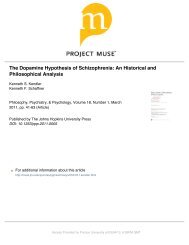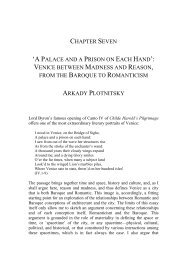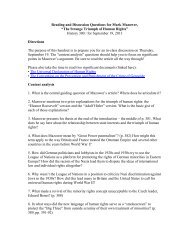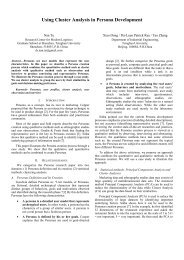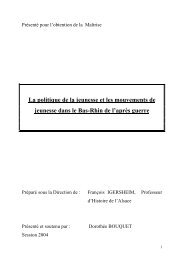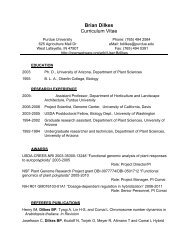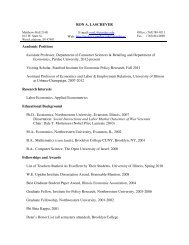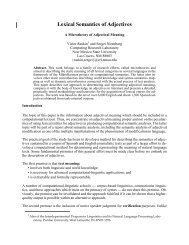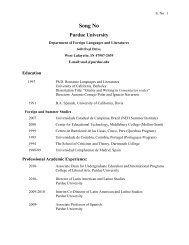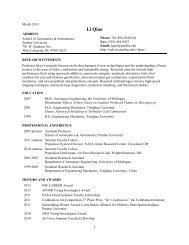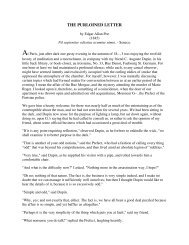Against the Yuck Factor - Career Account Web Pages - Purdue ...
Against the Yuck Factor - Career Account Web Pages - Purdue ...
Against the Yuck Factor - Career Account Web Pages - Purdue ...
You also want an ePaper? Increase the reach of your titles
YUMPU automatically turns print PDFs into web optimized ePapers that Google loves.
4 Daniel Kelly and Nicolae Morar<br />
in regulating <strong>the</strong> complex system of human social interactions, most<br />
notably roles related to social norms and group membership. The<br />
emotion was available to acquire auxiliary functions like <strong>the</strong>se in part<br />
because of <strong>the</strong> flexibility of its acquisition system, which allows both<br />
individual and social learning to influence what people find disgusting.<br />
This flexibility, in turn, gives rise to <strong>the</strong> patterns of variation found<br />
in what different individuals and groups of people find disgusting.<br />
Variation of this sort manifests in <strong>the</strong> types of cuisine that different<br />
people and cultures enjoy and find repulsive, but, more importantly, it<br />
also manifests in <strong>the</strong> types of norms, values and social practices people<br />
might find disgusting and reject.<br />
Though disgust primarily evolved to protect against poisons and<br />
parasites, <strong>the</strong> E&C view holds that disgust has been brought to bear<br />
on a variety of social issues, in some cases providing <strong>the</strong> motivation to<br />
comply with certain social norms and to punish those who violate <strong>the</strong>m,<br />
and in o<strong>the</strong>r cases providing <strong>the</strong> motivation to avoid interactions with<br />
members of o<strong>the</strong>r social groups, who engage in different practices and<br />
subscribe to a different set of values and norms. In virtue of its flexibility<br />
and susceptibility to learning, a given individual’s disgust system will<br />
be calibrated by her own personal experience, her family and peers,<br />
and her cultural in-group. Thus, her disgust will be directed not just<br />
at ‘exotic’ cuisines and locally salient markers of disease and infection,<br />
but also at those practices, norms and values that <strong>the</strong> cultural ingroup<br />
deems wrong and disgusting, as well as at those people, including<br />
members of cultural out-groups, who embrace <strong>the</strong>m. 3 Since <strong>the</strong>se vary<br />
from group to group and culture to culture, a given individual’s set of<br />
disgust elicitors will be in part a reflection of her social environment,<br />
with its parochial norms and local social divisions, some of which may<br />
be perfectly legitimate and justified, some of which may be odd but<br />
innocuous artefacts of an idiosyncratic past, o<strong>the</strong>rs of which may be<br />
deeply entrenched but unjust and unreasonable never<strong>the</strong>less.<br />
Finally, <strong>the</strong> E&C view holds that though disgust acquired <strong>the</strong>se new<br />
social functions, it did not lose its old ones, or those features that allow it<br />
to protect effectively against poisons and parasites. Norms, values and<br />
sensitivities to group membership that are informed by this particular<br />
3 Joseph Henrich, Steven Heine and Ara Norenzayan begin an important article on<br />
human psychological variation and diversity with a memorable example: ‘In <strong>the</strong> tropical<br />
forests of New Guinea, <strong>the</strong> Etoro believe that for a boy to achieve manhood he must<br />
ingest <strong>the</strong> semen of his elders. This is accomplished through ritualized rites of passage<br />
that require young male initiates to fellate a senior member. In contrast, <strong>the</strong> nearby<br />
Kaluli maintain that male initiation is only properly done by ritually delivering <strong>the</strong> semen<br />
through <strong>the</strong> initiate’s anus, not his mouth. The Etoro revile <strong>the</strong>se Kaluli practices, finding<br />
<strong>the</strong>m disgusting’ (Joseph Henrich, Steven Heine and Ara Norenzayan, ‘The Weirdest<br />
People in <strong>the</strong> World’, Behavioral and Brain Sciences 33 (2010), pp. 61–135, at 61).


